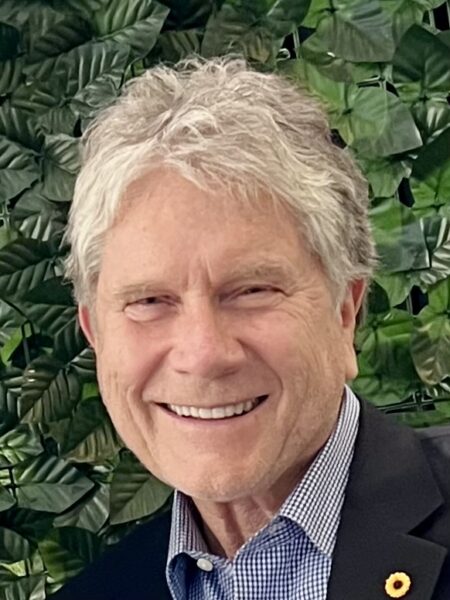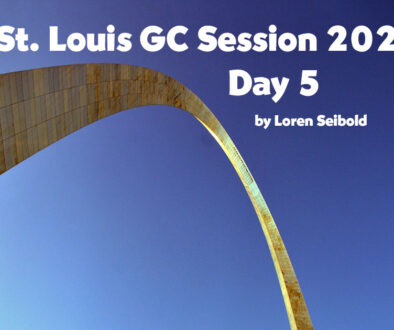Engaging Contemporary Thinkers: The Elephant and Its Rider
by Jim Walters | 21 February 2025 |
Read part 1 here
Read part 2 here
The demure Nicole mounts the zoo elephant for a stroll in the parched hills above Los Angeles’ Griffith Park. As instructed, she pushes on the elephant’s right side, and the elephant sidles right. Nicole feels firmly in control.
But when push comes to shove, who dominates? Imagine a sudden Los Angeles earthquake startles the elephant. When critical decisions are made about direction and speed toward safety, there’s no question: the elephant is powerfully in command.
The elephant/rider analogy comes from psychologist Jonathan Haidt’s justly applauded The Righteous Mind: Why Good People Are Divided by Politics and Religion. Haidt popularizes recent research in a compelling fashion, and concludes: “Moral judgment is mostly done by the elephant” (p.72). Reason is frequently over-rated, and often when we use it, it’s to bring others (or ourselves) to a particular affect-based viewpoint. A purely reasoned position, unhinged from the proclivities of our human condition, simply doesn’t exist.
The brilliant William Clifford—a British philosopher-mathematician of 150 years ago—left his Anglican faith because he wanted to follow reason, or, as he viewed it, “evidence.” Clifford famously declared: “It is wrong always, everywhere, and for everyone, to believe anything upon insufficient evidence.”[1] But what constitutes evidence? At a deep level, what is the fundamental basis for determining that x, and not y, is evidence?
Clifford’s answer was reason. And that’s what most people would say today—including most readers of this sentence. Indeed, if I personally were forced to offer only a single-word answer, I too would utter “reason.”
William James
When William James, the popular Harvard philosopher of over a century ago, addressed this topic, he didn’t limit himself to a single word. James challenged the increasing dominance of reason/evidence. James used Clifford’s dictum as a spur to pen his famous philosophical lecture, “The Will to Believe.” He argued, to the joint Yale/Brown philosophical societies in 1896, that in answering life’s most pressing existential questions, affect plays a more primal role than reason.
And further, James asserted: one’s “will to believe,” or, rather, the right to believe, is as applicable to religious as to scientific belief—to cast the issue as an overly simple binary. And along with William James and Jonathan Haidt, there’s a significant movement in moral psychology toward recognition that affect isn’t a dirty word. It isn’t opposed to reason; far from it. Affect breeds reason, and truly self-reflective reason recognizes that it is finally inseparable from affect.
The priority of affect
James builds his case for the priority of affect by citing predispositions we have through little or no choice of our own—but they are largely determinative. For example:
- Our belief in truth: That such a concept exists and “our minds and it are made for each other.”
- Our faith in anything is often “faith in someone else’s faith….”[2]
James insightfully concludes that “…we find ourselves believing, we hardly know how or why.”[3] However, these basic, inherited predilections are highly indicative of the direction that reason takes. It’s as though basic predilections about life’s big issues originate deep within us without our conscious thought, and then when our neocortex gets involved it generates reasons to justify what we feel at deep levels of our being. This explains how equally bright and well-educated U.S. Supreme Court justices will believe and argue diametrically opposite sides of important cases.
William James verges on mocking the high and mighty physical sciences:
- “What thousands of disinterested moral lives of men lie buried in [science’s] mere foundations.…”
- “What submission to the icy laws of outer fact are wrought into [science’s] very stones and mortar.…”
- “How absolutely impersonal it stands in its vast augustness.…”
And James doesn’t hesitate to poke science’s soft underbelly:
“Science herself consults her heart when she lays it down that the infinite ascertainment of fact and correction of false belief are the supreme good for man.”[4]
James saw his educated compatriots easily believing science, but skeptical of religion:
“To preach skepticism to us as a duty until ‘sufficient evidence’ for religion be found, is tantamount therefore to telling us, when in presence of the religious hypothesis, that to yield to our fear of its being error is wiser and better than to yield to our hope that it may be true. It is not intellect against all passions, then; it is only intellect with one passion laying down its law. And by what, [indeed,] is the supreme wisdom of this [scientific] passion warranted? Dupery for dupery, what proof is there that dupery through hope is so much worse than dupery through fear?” [italics added][5]
One might accuse James of merely using his own reasoning to justify his affective affinity for his Lutheran faith—and this explanation may in part be true. But such criticism of James doesn’t explain why today’s atheistic psychologist Jonathan Haidt would think along the same lines although using different lingo.
Intuitions come first
In his The Righteous Mind, Haidt contends that “[t]he first principle of moral psychology is Intuitions come first, strategic reasoning second” (Haidt’s italics).[6]
Baylor University classics professor Julia Hejduk builds on Haidt’s intuition/reasoning distinction:
“[W]hile we may believe Reason is a detective ferreting out the truth, it is usually more like a press secretary, justifying to ourselves and others the choices we have already made through intuition. This insight helps to explain why intelligent people often come to opposite moral conclusions.…”[7]
Robert J. O’Connell, S.J., enthralled by James’s philosophy of religion/science, wrote William James on The Courage to Believe. Therein he comments on James’s assertion that: “Religion in its most abstract expression [is] the affirmation that all is not vanity.” That ‘all,’ for James—according to O’Connell—
“embraces the most precious values humankind has come to cherish; for if religion itself is vanity and humans have no right to believe in it, then our sentiment of rationality is a liar, the universe makes no sense, we are not genuinely free, morality is an illusion and heroism the posturing of witless idiots….”[8]
Regarding James’ overall contention that affect precedes reason, O’Connell sees James proclaiming a “forgotten truth: that the pursuit of wisdom inexorably grips the whole human being, not merely brain and mind, but heart, emotions, imagination, and sensibility as well.”[9] From an Adventist viewpoint, such an affirmation of the primordial importance of human wholeness should evoke an affective amen!
In a word, the matter of emotion/reason isn’t a simple binary. The issue is one of priority.
The Elephant gets us up in the morning. And the Rider determines the multiple ways in which the Elephant will find fulfillment throughout her day.
- William James, “The Will to Believe,” chapter 2 in Essays on Faith and Morals (New York: New American Library, 1962), 39. ↑
- Ibid., 40. ↑
- Ibid. ↑
- Ibid., 38, 53. ↑
- Ibid., 57,58. ↑
- Jonathan Haidt, The Righteous Mind: Why Good People Are Divided by Politics and Religion (New York: Vantage Books, 2012), 82. ↑
- https://christianscholars.com/turning-the-elephant-a-post-christian-reflection-on-jonathan-haidts-the-righteous-mind-2/ ↑
- James’ quotation and O’Connell’s commentary, in Robert J. O’Connell, S.J., William James on the Courage to Believe (NY: Fordham University Press, 1984), 31. ↑
- Ibid., 126. ↑
 Jim Walters is professor emeritus of Loma Linda University’s School of Religion. This essay is the third of three—all based on Jim Walters’ Divine Spirit Both Grounds and Animates Science’s Domain, presented at the Adventist Society of Religious Studies conference, November 2024. The first two essays, Hollywood & Mars Hill and The Omnipresent Divine Spirit, explore the possibility of asserting the existence of Something beyond the mundane world: that God infuses Divine Spirit in every part of the created world.
Jim Walters is professor emeritus of Loma Linda University’s School of Religion. This essay is the third of three—all based on Jim Walters’ Divine Spirit Both Grounds and Animates Science’s Domain, presented at the Adventist Society of Religious Studies conference, November 2024. The first two essays, Hollywood & Mars Hill and The Omnipresent Divine Spirit, explore the possibility of asserting the existence of Something beyond the mundane world: that God infuses Divine Spirit in every part of the created world.




